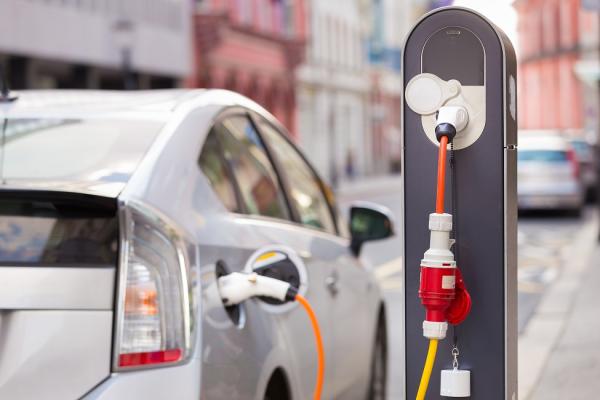
Press release: Shift in electric car tax rules do not go far enough
While the Association of Taxation Technicians (ATT) welcomes the new tax exemption for employees charging their personally owned electric car at work, it would like to see HMRC address the complicated tax rules of reimbursing employees for business travel in company owned electric vehicles.
The Government published recent draft legislation for a new exemption which means that, from April 2018, there will be no benefit in kind charge on electricity that employers provide to charge electric vehicles (all-electric or plug-in hybrid), personally owned by employees.1
Jon Stride, Co-chair of ATT’s Technical Steering Group, said:
“We welcome this new exemption, and are pleased that the draft legislation has a wider scope than HMRC‘s draft guidance had previously indicated.2 In particular, the requirement for employers to provide a ‘dedicated charging point’ appears to have been dropped. Not all employers would have been prepared to incur costs installing a specialised charging point for a limited number of employees and many electric cars can, among other ways, be charged directly from a traditional mains socket. Allowing this simple recharging approach to benefit from the exemption is a welcome relaxation.”
The draft legislation confirms that the exemption will only apply to charging vehicles at or near an employee’s workplace, and will not extend to the reimbursement by employers of costs incurred by employees in charging their vehicle elsewhere, for example at a motorway service station.
Jon Stride said:
“If the intention is truly to incentivise the use of electric cars, then we would recommend that consideration be given to widening its scope so that it extends to charging away from the workplace.”
The exemption set out in the draft legislation also only applies to cars which are personally owned by employees. Electric company cars have their own tax rules, which can be difficult to apply in practice, says the ATT.
Jon Stride said:
“Alongside this new exemption for personally owned electric vehicles, we would like to see HMRC address the complicated tax consequences of reimbursing employees for business travel in company owned, as distinct from personally owned, electric vehicles.
“Where an employee charges a fully electric company car themselves, their employer cannot use the standard Advisory Fuel Rates (AFR) to reimburse them.3 Instead, they are required to adopt a more complicated treatment, which requires them to identify the cost of the electricity used during the business miles travelled.4 This can be very difficult where a company car is charged at home, as it will be difficult to isolate the exact cost of charging the car from the overall electricity bill for the household.
“To avoid this, we would like to see AFRs, or a similar standard benchmark rate, extended to company electric cars.”
Notes for editors
1. Benefits in kind (‘BIKs’) are benefits which employees or directors receive from their employment but which are not included in their salary payment. Where benefits in kind are taxable, tax is paid on the taxable value of the benefit as defined in the legislation.
At the Autumn Budget on 22 November 2017 it was announced that, from April 2018, there will be no BIK charge on electricity that employers provide to charge employees’ electric vehicles. The draft legislation intended to introduce this exemption was published on 6 July 2018 as part of Finance Act 2018-19 and can be found here.
2. Draft guidance indicating the intended scope of the exemption was published by HMRC on 12 April 2018. This included a requirement that electricity be provided through a “charging point dedicated to charging all-electric or plug-in hybrid vehicles and specifically designed for this purpose”. This requirement is not included in the draft legislation published on 6 July 2018
The draft guidance can be found here and the ATT’s submission in respect of it here.
3. Advisory Fuel Rates (AFRs) are rates which can be applied when an employer reimburses an employee for business travel in their petrol, diesel or LPG powered company car. Provided the rate paid per mile does not exceed the AFR rate for the particular engine size and fuel type, HMRC will accept there is no tax or NICs to pay. More information on AFRs, including the current rates, can be found here.
4. Where an employer charges a hybrid company car (a car which has an electric propulsion system in addition to a petrol or diesel propulsion system) themselves, then the normal petrol / diesel AFRs can be used to reimburse them.
However, the situation is more complicated with pure electric company cars (‘plug-in’ cars with an electric propulsion system only and no petrol or diesel engine), where employers cannot use AFRs to reimburse employees.
Instead if the employee is reimbursed, then the tax treatment depends on the use of the car:
- Business use only – the exemption for paid or reimbursed expenses will exempt the amount received.
- Personal or mixed use - the reimbursement is taxable as earnings, with the employee entitled to a deduction for the cost of business miles travelled.
If their employer does not reimburse them, employees should be entitled to a tax deduction for the actual electricity cost of business miles travelled. This raises the practical difficulty of identifying the cost of the electricity used during business miles travelled. This may be relatively straightforward where a commercial charging point is used, but could be difficult to establish where a company car is charged at the employee’s home.















